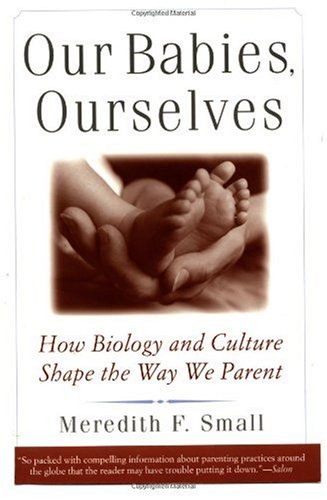No Such Thing as "Universal Culture"
As the pop pundits keep reminding us, we are becoming a global culture. We share the same TV shows and movies, drink the same Coca-Cola, and shoot the same Kodak film. But this "global culture" is highly superficial—^it is only the gloss of popular culture, apparent only in what people over the world would like to buy. I am guessing that those boasting of an electronic superhighway where "anybody" can be connected to "anybody" have not traveled much in the third world; they are blinded by the affluent economy of their own culture into thinking they share much of anything with a Malaysian forester or Sudanese refugee. More illustrative is the fact that one out of every five women on the planet is Chinese, and that most of the people in the world have never spoken on a telephone. We do not share the same culture or the same economy, and it will be a long time before we do, if ever.
Notes:
Pundits keep reminding us that culture is becoming homogenized, but tell that to the third world inhabitant living without electricity or internet.
Folksonomies: internet global culture homogenization
Taxonomies:
/art and entertainment/movies and tv/movies (0.535060)
/technology and computing/consumer electronics/telephones (0.499395)
/law, govt and politics/politics (0.292450)
Keywords:
world inhabitant living (0.944201 (neutral:0.000000)), global culture (0.830515 (neutral:0.000000)), Sudanese refugee (0.693608 (negative:-0.523051)), affluent economy (0.688292 (negative:-0.523051)), Malaysian forester (0.682511 (negative:-0.523051)), Kodak film (0.682503 (neutral:0.000000)), electronic superhighway (0.682314 (negative:-0.282294)), Universal Culture (0.665285 (positive:0.204100)), TV shows (0.664938 (positive:0.507762)), highly superficial—^it (0.663127 (negative:-0.362550)), long time (0.644010 (neutral:0.000000)), popular culture (0.631767 (negative:-0.362550)), anybody (0.542811 (neutral:0.000000)), people (0.491246 (negative:-0.390124)), boasting (0.475878 (negative:-0.282294)), gloss (0.475072 (negative:-0.362550)), Coca-Cola (0.469893 (positive:0.281051)), Thing (0.465561 (negative:-0.237566)), electricity (0.462830 (neutral:0.000000)), internet (0.453423 (neutral:0.000000)), thinking (0.451377 (negative:-0.523051)), movies (0.448692 (positive:0.507762)), fact (0.444017 (negative:-0.280033)), women (0.443847 (negative:-0.280033))
Entities:
third world:FieldTerminology (0.934417 (negative:-0.362919)), Sudanese refugee:Organization (0.487917 (negative:-0.523051)), Coca-Cola:Company (0.419245 (positive:0.281051)), Kodak:Company (0.401537 (neutral:0.000000))
Concepts:
Culture (0.977993): dbpedia | freebase | opencyc
Popular culture (0.813604): dbpedia | freebase | yago
Film (0.790155): dbpedia | freebase | opencyc
Television (0.682051): dbpedia | freebase | opencyc
Globalization (0.656450): dbpedia | freebase
Earth (0.532403): dbpedia | freebase
Europe (0.518691): dbpedia | freebase | yago
High culture (0.510555): dbpedia | freebase | yago





